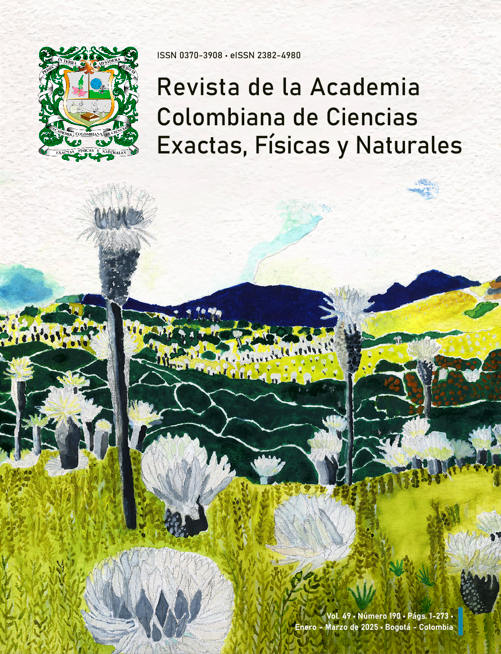Abstract
The concept of electrostatic potential energy has served as a starting point for a deeper understanding of several models in electromagnetic theory. We use this concept looking for a connection between some of those models, in particular, we analyze the contribution of electrostatic potential energy for different configurations of electric charge with circular symmetry. We study models corresponding to a discrete set of point charges arranged in a polygonal figure, a uni-dimensional continuously charged ring and a continuously charged torus, considering the existing analogies between them. In addition, we contrast the situation between the discrete and continuum models.
References
Antonov, V. (2003) Inequalities for electrostatic energy. Technical Physics, 48, 928–930. https://doi.org/10.1134/1.1593202
Besley, E. (2023) Recent developments in the methods and applications of electrostatic theory. Accounts of Chemical Research, 56(17), 2267–2277. https://doi.org/10.1021/acs.accounts.3c00068
Brinck, T., Borrfors, A. N. (2022) The importance of electrostatics and polarization for noncovalent interactions: Ionic hydrogen bonds vs ionic halogen bonds. Journal of molecular modeling, 9(28), 275. https://doi.org/10.1007/s00894-022-05189-6
Charyyev, A., Shikakhwa, M. S. (2018) Ring symmetry in electric potential calculation extended to discs and cylinders. European Journal of Physics, 39(6), 065204. https://doi.org/10.1088/1361-6404/aae357
Ciftja, O., Babineaux, A., Hafeez, N. (2009) The electrostatic potential of a uniformly charged ring. European Journal of Physics, 30(3), 623. https://doi.org/10.1088/0143-0807/30/3/019
Ciftja, O. (2023) Stored electrostatic energy of a uniformly charged annulus. Journal of
Electrostatics, 122, 103794. https://doi.org/https://doi.org/10.1016/j.elstat.2023.103794
Escalante, F. (2021) Electrostatic potential and electric field in the z axis of a non centered circular charged ring. European Journal of Physics, 42(6), 065703. https://doi.org/10.1088/1361-6404/ac221c
Feynman, R. P., Leighton, R. B., Sands, M. (1963) The feynman lectures on physics, vol. i: The new millennium edition: Mainly mechanics, radiation, and heat. Basic Books.
Good, R. H. (1999) Classical electromagnetism. Saunders College Publishing.
Greiner, W. (1998) Classical electrodynamics. Springer New York.
Griffiths, D. J. (1999) Introduction to electrodynamics. Pearson Education.
Hernandes, J. A., Assis, A. K. T. (2003) Electric potential for a resistive toroidal conductor carrying a steady azimuthal current. Physical Review E, 68, 046611. https://doi.org/10.1103/PhysRevE.68.046611
Hernandes, J. A., Assis, A. K. T. (2004) Surface charges and external electric field in a toroid carrying a steady current. Brazilian Journal of Physics, 34, 1738–1744. https://doi.org/10.1590/S0103-97332004000800041
Kittel, C., Knight,W. C., Ruderman, M. A. (1973) Berkeley physics course: Mechanics.McGraw-Hill.
Maleki, M., Vasudev, G., Rueda, L. (2013) The role of electrostatic energy in prediction of obligate protein-protein interactions. Proteome Science, 11((Suppl 1)). https://doi.org/10.1186/1477-5956-11-S1-S11
Tashayev, Y. N. (2019) Paraxial approximation of the electrostatic potential of a charged nonconducting torus. Journal of Physics: Conference Series, 1400(4), 044034. https://doi.org/10.1088/1742-6596/1400/4/044034
Wangsness, R. (1997) Campos electromagn´eticos. Limusa.
Wells, D. (1967) Schaum’s outline of lagrangian dynamics. McGraw-Hill.
Whittaker, E. T. (1917) A treatise on the analytical dynamics of particles and rigid bodies. Cambridge University Press.

This work is licensed under a Creative Commons Attribution-NonCommercial-NoDerivatives 4.0 International License.
Copyright (c) 2024 Revista de la Academia Colombiana de Ciencias Exactas, Físicas y Naturales


